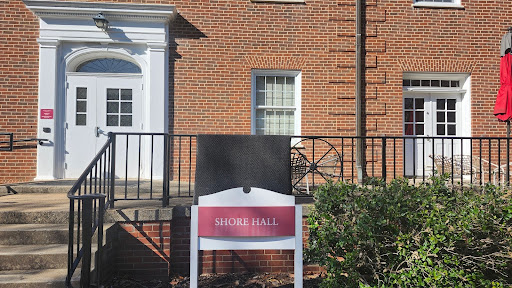This year, Guilford is trying something new: January term.
J-term offers students the opportunity to study away, study abroad or domestically, take an on-campus seminar, launch an independent project, or intern for a company.
The enrollment deadline for J-term was extended from Nov. 2 to Nov. 19, and some speculated that low enrollment was behind the extension.
Professor of Theater and Director of Study Abroad Jack Zerbe and Assistant to the President for Planning and Management Jeff Favolise debunked this rumor.
“The deadline was extended to avoid the confusion of having two deadlines for the close of registration, one for January and one for spring,” said Zerbe in an email interview.
“We wanted to give students every opportunity possible to consider enrollment, to discuss opportunities with their advisors and to register,” said Favolise in an email interview.
According to Favolise, 174 students are participating in J-term. Forty-eight will study abroad, eight will study away domestically, 79 enrolled in on-campus seminars, 25 chose independent studies and 14 are interning.
These students are participating in 58 different J-term projects, consisting of nine on-campus seminars, 14 study away courses, 10 of which are abroad, 21 independent projects and 14 internships.
“This particular set of numbers far exceeds our original goals,” said Zerbe. “However, it is fair to say we’d hoped overall to do a bit better, especially on campus and with internships.”
The Cold Case Evaluations class, an on-campus seminar led by Assistant Professor of Biology Bryan Brendley, boasts full enrollment.
Students will learn strategies used to crack a cold case; something that Brendley believes speaks to the core Quaker value of justice. Brendley credits the program’s success to several factors.
“I kept it simple,” said Brendley. “Kept the cost down, the time down, the credits down.”
Students also show enthusiasm for the upcoming course.
“I saw the J-term Cold Case class and was thrilled at the opportunity to earn needed credits and work on an exciting topic,” said CCE student Laura Sammon via email. “I’m very excited about the J-term’s fast pace and focused study.”
This course is just one of the successes of this year’s J-term.
“It amazes me that the college has managed to develop this new programmatic dimension in less than a year,” said Zerbe. “That alone is a great success. Perhaps our second greatest success is the range of exciting offerings that have materialized as part of the term. However, access to students has clearly been a problem.”
Many students cannot participate in J-term because they cannot afford it on top of normal tuition. Zerbe sees a possible solution.
“I hope to see us one day embrace the mode used by other schools with successful January terms, embedding the cost in annual tuition,” said Zerbe. “In a sense, it then becomes ‘free’ to students, and gives them the opportunity to learn and grow from the unique experience of an immersive project.”
This leads to another common rumor: Guilford will require J-term in the future.
Zerbe says that is not currently planned for the program but planning for next year’s J-term has already begun, especially in regards to programs abroad.
Faculty have proposed trips studying things including international business in Shanghai, arts and religion in Bali and Java, a cultural pilgrimage in Spain, a choir tour in Europe, a history project in Italy, and a biology or environmental studies project in the Galapagos Islands.





